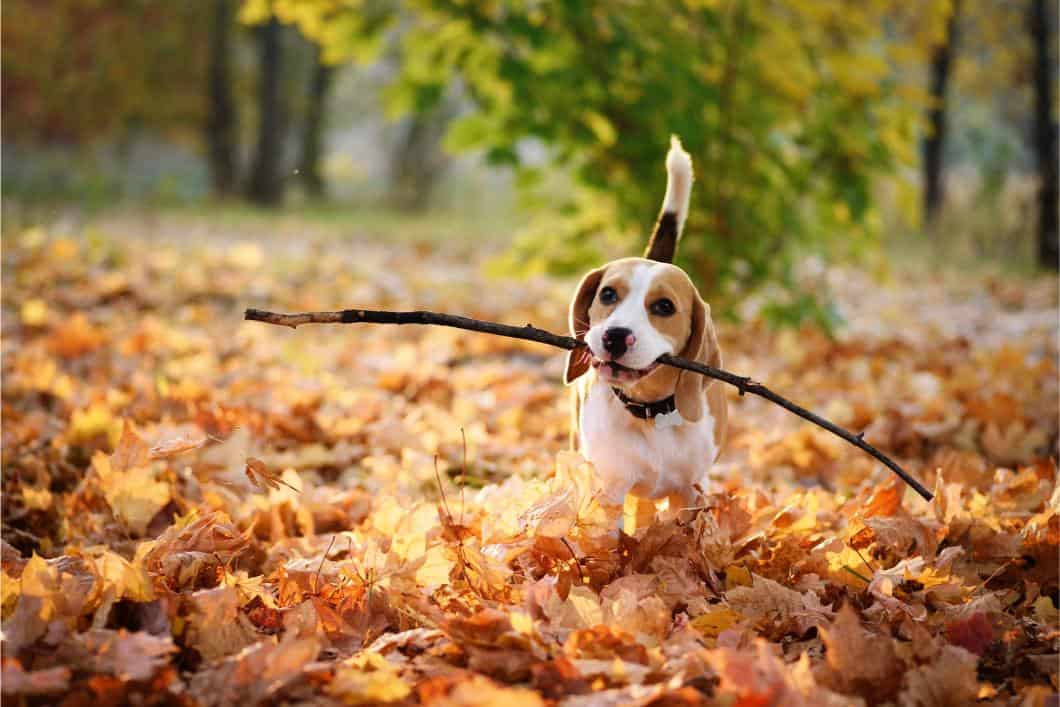Fall Pet Safety

San Antonio gets our fair share of chilly temperatures between October and March. Many pets welcome the seasonal change from summer to fall, but others may acutely feel the shift. Young and senior pets are prone to weather-related discomfort, and those with pre-existing health conditions can also experience significant side effects. We’re here to help your pet find the sweet temperature spot for optimal comfort and health.
Keep ‘Em Moving
We understand the temptation to snuggle up on a chilly day, but sticking to a routine is helpful for pets. If this includes a daily walk or two, stick with this throughout the fall and winter. Less exercise without adjusting their meal portions can lead to weight gain and a variety of related problems.
Exercise also maintains brain health, muscle tone, mobility, and flexibility. A tired pet is generally a happier one. If it gets much colder than normal, there are jackets, sweaters, vest, and boots that can help keep your pet comfortable.
Hydration and Comfort Are Key
Keeping fresh, clean water is essential all year round. In colder weather, our pets may not be panting as much or exerting as much energy as they do in summer, but pets still benefit from adequate hydration.
A home’s central heating is a boon to aging or senior pets and younger animals, but it can lead to dry skin. Allergies can also be tough on pets this time of year. To avoid this:
- Be sure to add some humidity to the home to improve skin and coat health.
- Keep their coat looking and feeling great by regularly brushing and grooming.
- Refresh their bedding and blankets regularly.
Cold Weather Pet Safety
Antifreeze, rodenticide, and insecticides are extremely toxic to pets. If you use any of these products, be sure to store any bottles in your garage or shed off the floor (preferably behind closed cabinet doors). Do not allow your pet to get a drink from any puddles on the street or sidewalk.
If You Know, You Know
Other known risks to fall pet safety include:
- Fall decorations and certain flowers can be poisonous to pets if eaten.
- Wildlife seeking shelter and prey can cause serious injury to pets. Be sure to clear away potential habitats, such as wood or leaf piles, for snakes and other wildlife.
- Ticks, fleas, and even mosquitoes are becoming consistent threats to a pet’s health, and climate change makes it easier for them to threaten pet health throughout the colder months. Maintain their year-round parasite prevention.
Please let us know if you have questions or concerns about your pet’s health and safety this fall. We’re always here to help at Borgfeld Animal Hospital.
